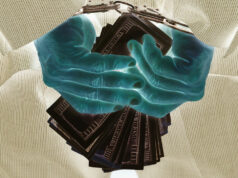By Raju Mandhyan
TWO INCIDENTS incited me to pen this story about storytelling.
The first was a conversation at my old school, the University of Asia Pacific, about “Building a Storytelling Culture” with Bong Mojica, Roni Balbieran, and X. Vallez from the same school. The second was my taking an online masterclass on writing by the illustrious Malcolm Gladwell of the New Yorker.
The point I’d like to highlight is a quote by Franz Kafka, cited by Gladwell in his class. The precision and the depth in the quote excite me as much as it did the gentleman journalist. “Everyone is necessarily the hero of his own imagination.”
Everyone! Every time and necessarily by default when they tell a story snipped out of their own lives they end up making themselves the protagonists of their own imaginations. Even if it is a story about them being victimized the audience ends up sympathizing and glorifying the storyteller. Whether it be a story of a failed journey, a business mishap, or a relationship breakdown, you as the storyteller still end up winning all the accolades. Go ahead and try telling a story about when you came down hard on someone in your life. Or, go ahead and share a story about how you played office politics to get ahead in your career. There is always a good chance that your audience will offer you some consolation and urge you to go on and live your life because you might have had a good and valid reason to be the hero, even if you were of the “anti” kind.
Thus, I have always been cautious of responding to the question “what happened?” when talking about a business mishap, a relationship breakdown, or when I came down hard on someone else. No matter what I do, I end up painting a picture that is a figment of my own imagination, my own perspective, and my own biases. And stories, in essence, have such power and beauty in them that they draw in all around them and drench them with your views of life and the world, even if you did not intend to do so.
By sharing these insights with you, I aim to caution you from thoughtless storytelling and urge you into using stories powerfully towards a higher and a better purpose. Yes, we all necessarily have biases and when we let our positive and affirmative biases seep into our stories we build bridges towards a brighter future.
A couple of years ago, when I was wrapping up the writing of my book, the HeART of the STORY, I was asked by some of the readers and participants of my seminar of the same title: “Must the leader-storyteller always make himself the hero, the protagonist of the story, and how?”
And, my answer was: “A leader-storyteller doesn’t always have to make herself the protagonist of the story. She can conjure up fictional characters and incidents to put across a point or state a truth, taking care and making sure that the yarn she spins doesn’t become too flimsy or synthetic. She can also use other people and tell stories of their sojourns and successes. Here, she does have to make sure that she adds life and vibrancy to their emotions and experiences.
“Now, if and when she does tell or write herself in as the protagonist then she has ease back from brow-beating and glorifying her own skills and capabilities as a hero. If she doesn’t then it comes across as egoistical talk and creates a rift between the audience and herself. Our audiences, our clients, give us their trust and faith only when they sense and are assured that the leader is not self-focused and is focused on their welfare and a greater good.
“As a leader when we are using ourselves as the protagonist then our character plays out best when it is humble, ordinary in ways, transparent, and achieves breakthrough results through reflection, self-correction and living up to the values she espouses.”
When you lay your eyes upon this article, chances are that the year will have turned and if you plan on making any new resolutions then resolve to be choosy and use the power of storytelling with caution and a lot of compassion towards the change you create every single day, with every single word of yours. Remember, everyone is necessarily the hero of her own story.
Raju Mandhyan author, coach and learning facilitator.



